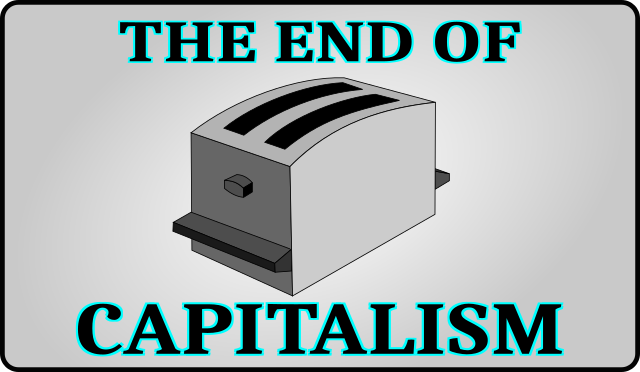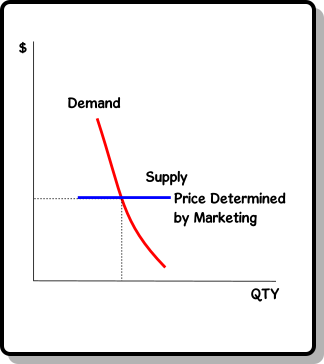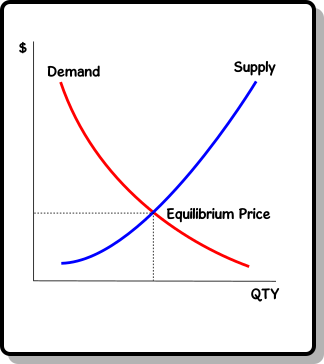
Something that capitalism does really well, is it satisfies 90% of the need.
The problem is, that last 10% usually takes a huge amount more effort / cost to fulfil, so it is usually not done.
We had decent health care for most of the people in The US, but those who wanted everyone to be covered have made insurance costs skyrocket, and the level of healthcare go down for everyone. And, we really have only gone from 90% → 96%. We still do not cover everyone. In fact, we have created less healthcare.
Capitalism also doesn't solve social problems where the beneficiaries are the without funds to pay. Like, the poor, and the teenagers. We really need to have places for teenagers to hang out and interact. But, since they have little money, the restaurants, theaters, and other forms of entertainment which are abundant, are not available to them. We also do a poor job having the necessities for the poor.
Let us analyze why capitalism fails here, and what can be done about it.

The last 10% of the project, takes 90% of the time.
This is true on so many projects, like writing and debugging a program, or building a house.
You reach a point where it seems you are almost done. But getting that last "little bit" done is a painful slog.
Testing, bug fixing, customer feedback, program changes and documentation are all extremely time consuming. But, these are really only started when you have a program running, basically, pretty much done. This is why we have seen computer programs get buggier and buggier as they are released earlier than intended (when the programmers actually think it will be done).
If you are building a house. The thing is standing, with is exterior stucco and windows and roofing, looking done. But, its not. So much has to be done inside. Cabinets, finish plumbing, finish electrical, painting, carpetting/flooring, all kinds of inspections, HVAC, finish grading, landscaping… the list of tiny things is endless.
In our current market system, we assume something that looks mostly done, should cost most of the estimate. And we baulk when we actually get the price tag for finishing.
Its like Ikea. The box from Ikea is cheap. And if you can assemble it yourself, it is. But, if you pay someone to assemble it, it can often double the price. Especially if they reinforce it.
Our eyes, and advertising deludes our sense of cost and value.

Just a little better should cost just a little more?
Do you know how much more it costs to make that extra, super-delux, model toaster? It costs the same amount as the same sized cheap toaster. No, really. It is usually only a few cents more to make it out of better/thicker steel. Its a few cents more for an electronic timer instead of the rheostat timer. The toaster you buy at Wallymart for $10 costs pretty close to the amount to manufacture as it costs to build that $100 toaster at Khools.
However, you must still choose the toasters available at the store. You cannot order one with slightly thicker steel.


We really do not have a free market economy. We have a market where a few manufacturers have decided on what people want, and the price they assume it will cost.
There are no supply and demand curves, there is a monopoly in manufacturing AND distribution. The "competing brands" do not really exist. You are left with the quality, price & styles chosen by marketing.
Getting a little better quality means going into the custom built market.
And, if you think that custom cabinet will be a little more expensive than Ikea, think again.
The Ikea price is usually about the same as the wood costs for a custom cabinet (not the hardware, or my time).
The custom cabinet will be at least 10x the price of Ikea.
The quality will be 10x better, but you will have to wait for the cabinet to be built, and new, they will look just about the same. So, is it really worth 10x?

Providing necessary services
Capitalism is really bad at providing necessary services for varied consumers.
It seems that in the summer, electric companies in capitalistic countries can't provide 100% power. The customer dissatisfaction is not enough to pay for an extra power plant and the supply chain to deliver it fuel, that would be needed to provide 100% power during peak times. And, why would you build an extra plant that will never pay for itself? It is only used a few weeks each year, but still requires all the maintenance. It is just not economically viable.
However, if the goal was 100% power, it is easily done. If it was to provide rich people with power, that could easily afford any cost, except for their being a power outage, then it would be done.
BUT!! we must also compare the power systems in communist/socialist countries. Often these country's power systems are worse. Many not providing 100% on a normal day. The system doesn't produce enough production to pay for enough power plants.
BUT BUT!!! The power companies in America could easily provide 100% power, but they would rather operate at a better cost efficiency. The more power plants operating at near optimal loads provides the best income. Getting from 90% to 100% is just too costly. Further, you have to keep feeling that electricity is rare, so they pay lots.
What is weird is that these companies are monopolies, protected industries, and can set their prices within reason. They shouldn't be run as a capitalist, for profit entity. However, most people would rather not pay the huge cost it would take to gt to 100%.

Our local govern-cements should not be the bureaucracies that they are. Instead they should be focussed on providing necessary infrastructure for the community. Like, town meeting halls. Dance/group meetings/club buildings/rooms.
Communities really need places for single people to meet. For the community people to get together regularly. For a place for teenagers to congregate.
These things used to be provided by churches and organizations. (Lions, Rotary Club…) However, the local govern-cement stopped this from happening by regulation. And then they limited things further by bureaucracy.
We really need a better form of local govern-cement to go with the capitalist economy. However, we seem to like having the worst of both worlds.
Fortunately, we will see better system here in the near future.
We will be building small communities, and they will have the ability to work towards what they feel is the best solutions.
We will also have small community manufacturing. Or, what capitalism really needs, lots of competition to step up if the monopoly becomes corrupt.
I am really looking forward to better ways of running things.

I will vote on your post later but you are correct. No system is perfect.
But the number one problem with capitalism is we do not have it because it was started by Christians and others stepped in. Yesterday, or a couple of days ago, Warren Buffett sold $300+ billion of his Berkshire Hathaway stock to class B Berkshire Hathaway stock and moved it into three foundations, 1 for each of his children. He will most likely pay zero taxes on the amount.
He claims Christianity and maybe it's true. But if not, ...
Downvoting a post can decrease pending rewards and make it less visible. Common reasons:
Submit